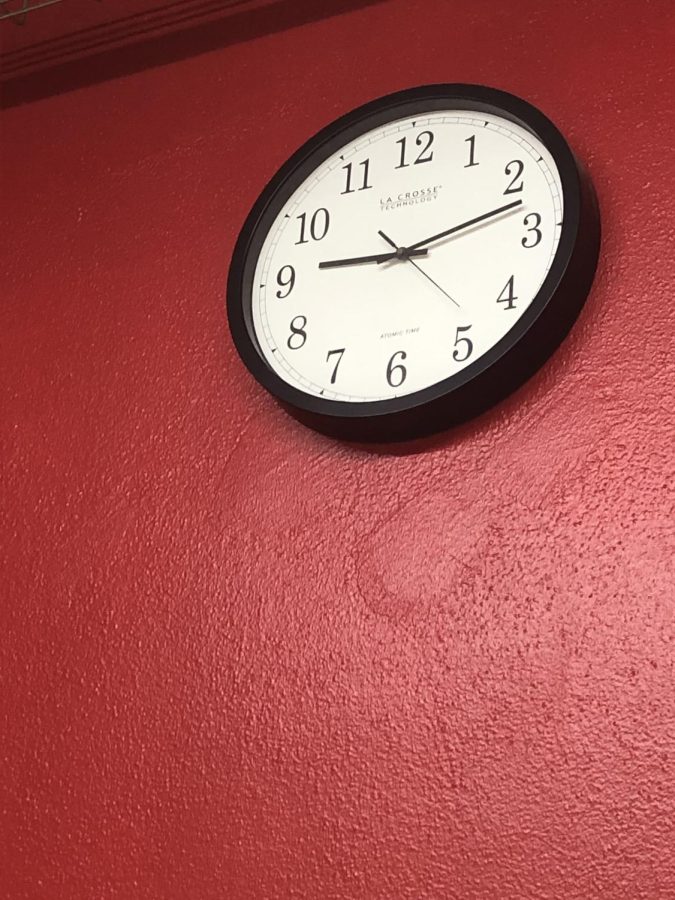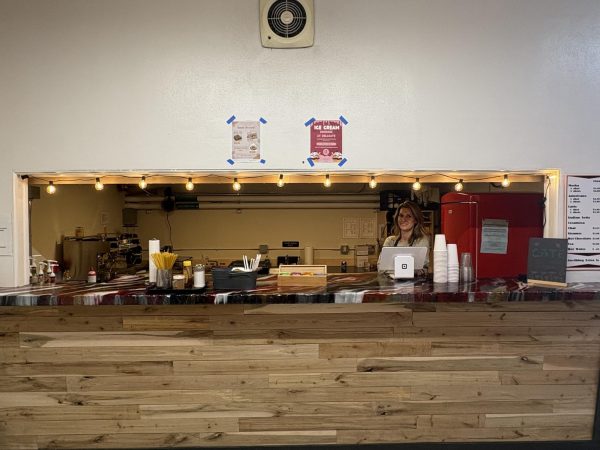Procrastination: An Unexpected Ally?
So there I was, sitting at my desk, the clock reads 7:54PM. I have been sitting here for hours and written across the page are three sentences. 600-word essay. Due tonight. 11:59 PM. Three sentences.
I have deep cleaned my bathroom. Walked the dog. Twice. Organized my entire bookshelf, by color. Baked a large batch of chocolate chip cookies. And here I am, three hours later, sitting in front of my computer, with three measly sentences. How did I get here?
Many of us find ourselves in situations similar to this. We know we should have started much sooner. And yet, we keep finding ourselves close to the deadline with, well, three sentences. The culprit? Procrastination. A habit many of us can relate to. In fact, according to the American Psychological Association, 20 percent of U.S. men and women are chronic procrastinators. That’s higher than the number of people diagnosed with clinical depression or phobias. And it’s not just an inconvenience. Over time, chronic procrastination has not only productivity costs, but measurably destructive effects on our mental and physical health.
For something that is so normalized, how much do we really understand about procrastination? So many of us relate to the stress and inconvenience that comes with it, it’s time we examine this habit through a different lens.
Etymologically, “procrastination” is derived from the Latin verb procrastinare which means to put off until tomorrow. But it’s more than just voluntarily delaying. Procrastination is also derived from the ancient Greek word akrasia, which is to do something against our better judgment. So why do we do it? If we have to get it done anyways, why delay the task and cause ourselves ultimately more stress?
In his notable TED Talk, Inside the Mind of a Master Procrastinator, Tim Urban uses an analogy to explain this concept. Urban describes the idea that we all have a rational decision maker that lives behind the wheel in our brains. For the most part, this “rational decision-maker” remains in control. But for us procrastinators, we also have what Urban refers to as an “instant gratification Monkey.” When we are faced with a task, our rational decision maker may say something like, “This is a perfect time to get some work done.” But the monkey has other plans. He’ll interject with something like, “Let’s binge all 18 seasons of Grey’s Anatomy…again!” derailing any chance of productivity. The instant gratification monkey lives entirely in the present moment. He has no memory of the past, no knowledge of the future, and he only cares about two things: easy and fun. This push and pull relationship between the rational decision maker and instant gratification monkey is what drives us to procrastinate. Urban reminds us, “We need to stay aware of the Instant Gratification Monkey. That’s a job for all of us.”
In addition, psychologist Dr. Hal Hershfield of UCLA conducted research that shows that, on a neural level, we perceive our “future selves” more like strangers than as parts of ourselves. When we procrastinate, parts of our brains actually think that the tasks we’re putting off – and the accompanying negative feelings that await us on the other side – are somebody else’s problem. Essentially, procrastination is not just a habit but an emotional and psychological response to unwanted feelings.
Now that we have a better understanding of procrastination, let’s examine the social narratives that surround it. In response to procrastination, many of us have been told “you’re just lazy” or “you just need to learn better time management.” While sometimes that may be the case, it can also be a sign of creative processing. Professor of psychology, Dr. Tim Pychyl, asserts that “Procrastination isn’t a unique character flaw or a mysterious curse on your ability to manage time, but a way of coping with challenging emotions and negative moods induced by certain tasks.” This can be anything from boredom, anxiety, frustration, resentment or self-doubt.
In the face of these adverse feelings, one of the best things we can do is practice self compassion. Treating ourselves with kindness and understanding in the face of our mistakes and failure can provide a buffer against negative reactions. In fact, several studies show that self-compassion supports motivation and personal growth. Not only does it decrease psychological distress, which we now know is a primary culprit for procrastination, it also actively boosts motivation and enhances feelings of self-worth.
Finally – I can’t put it off any longer – let’s discuss how we can work with procrastination, not against it. Chronic procrastination is so common that if you’re not affected yourself, chances are that you work with at least one or more procrastinators in your day to day life. So how can we ease the anxiety and discomfort that comes with procrastination?
Unfortunately, we can’t just tell ourselves to stop procrastinating. And despite the prevalence of “productivity hacks,” focusing on the question of how to get more work done doesn’t address the root cause of procrastination. The solution doesn’t involve learning new strategies for self-control or downloading a time management app. We must find a better reward than avoidance – one that can relieve our challenging feelings in the present moment without causing harm to our future selves.
While procrastination is normally associated with negative consequences such as being stressed out or late, Rory Vaden, author of Procrastinate on Purpose, says strategic procrastination is a tool used by the ultra-successful. Steve Jobs procrastinated regularly. Ernest Hemingway often left sentences unfinished; J.R.R. Tolkien painstakingly answered reader questions by mail instead of working on his book. Martin Luther King Jr. didn’t start writing his ‘I have a dream’ speech until the night before – and he was still jotting notes and crossing out lines right before he walked onstage.
There are two main types of procrastinators: passive and active. Passive procrastinators are procrastinators in the traditional sense. Paralyzed by their indecision to act, they fail to complete tasks on time. In contrast, active procrastinators are a “positive” type of procrastinator. They often prefer to work under pressure and make the deliberate decision to procrastinate. Results show that although active procrastinate to the same degree as passive, they are more similar to non procrastinators in terms of purposeful use of time, coping styles, and outcomes including academic performance.
So, how can we reimagine our relationship with procrastination in a way that will cause less harm. An article published by Princeton University outlines three main steps we can take to better coexist with procrastination. Takeaway number 1: Increase awareness – Reflect on the reasons why you procrastinate, as well as your habits and thoughts that lead to procrastination. Takeaway number 2: Set goals – Focus on what you want to do, not what you want to avoid. Think about the productive reasons for doing a task by setting positive, meaningful learning and achievement goals for yourself. And finally, takeaway number 3: Be Realistic – Achieving goals and changing habits takes time and effort; don’t sabotage yourself by having unrealistic expectations and be patient with yourself.
Procrastination is inevitable and affects all of us in one way or another. It is paramount that we understand this habit, and most importantly, work towards a more holistic approach, one that values self-compassion and puts our mental health first. We’ve defined procrastination and learned about some of the scientific components that contribute to it. We’ve deconstructed harmful stereotypes, shedding light on the positive aspects to procrastinative behavior. And finally, we established tools any procrastinator can use to succeed.
As I sat there in front of my three sentences, I realized that I was much more stressed than I needed to be. That time crunch adrenaline finally kicked in and three sentences turned into 50. Was it the best essay I’d ever written? No, not at all, but I got it done. Those cookies were delicious, and I’m sure my mom appreciated the clean bathroom, but in hindsight, all those extra tasks were just the monkey in my brain telling me to do what’s easy and fun. I know now how to coexist with my procrastination habits in a healthy way. I believe that if we change the way we think about procrastination, we will all be better for it. And hey, maybe next time I’ll only walk the dog once.

Hi! I'm Sophia and I am a senior at Hellgate. This is my first year with the Lance and I am excited to share some stories this year. I enjoy running cross...





